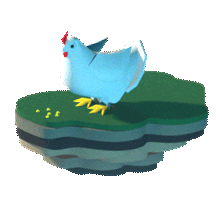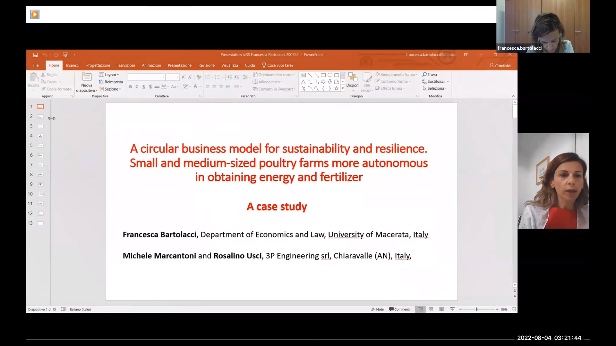The case study on CHIMERA has been presented on 4 August 2022 at the International Conference on Resource Sustainability (icRS) by Francesca Bartolacci, PhD, Associate Professor at the Department of Economics and Law at the University of Macerata (Italy).
Together with Rosalino Usci, PhD, and Michele Marcantoni, PhD, the engineers who developed the two patents of the new CHIMERA technology, Francesca Bartolacci is the author of the scientific paper “A circular business model for sustainability and resilience: Small and medium-sized poultry farms more autonomous in obtaining energy and fertilizer”, in which the CHIMERA project is proposed as a case study, with an analysis of the business model and the repercussions that the new technology could have in the economy of the sector.
The International Conference on Resource Sustainability (icRS) serves as a platform for researchers and practitioners around the world with diverse background and expertise to share the most recent ideas, outcomes, and practices on resource sustainability. icRS embraces interdisciplinarity, welcoming contributions from various disciplines, including natural sciences, social sciences and engineering on any aspect of resource sustainability.
The CHIMERA case has been presented in DAY 4 (see icRS 2022 Abstract Book, page 169) as part of the session dedicated to “Environment & Sustainability”, after the Plenary session by Prof. Nansai Keisuke, of the National Institute for Environmental Studies (Japan). Prof. Bartolacci, also appointed as chairman of the Session, highlighted how the research presented aims to investigate the possibility to react to resource restrictions and waste management by implementing a new business model that embeds circular economy principles, with the aim to decrease emissions, waste and vulnerability to sudden economic and market shocks. The case study is analyzed with the aim of identifying the main elements of a circular business model that can be employed by poultry farms which intend to operate by a strategic vision, according to production and consumption processes compatible with sustainability, circularity and resilience. The new business model comprises an innovative technology (CHIMERA) that reconceptualizes the role of chicken manure as a valuable resource to the production of fertilizer, thermal energy, and also electrical energy.



